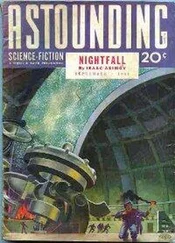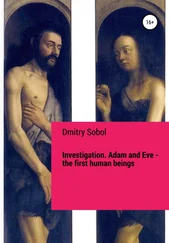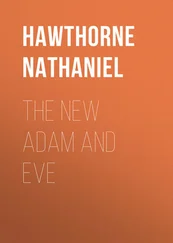“Who? Minty?”
“No, Mum, Mr. Kroot’s cat. Who else but Minty?”
“Don’t ask me.”
“I only ask because normal people don’t act the way she does. Seeing ghosts and not knowing any men before Jock and always wearing the same sort of clothes, exactly the same. And all the compulsive things.”
“Now you mention it, that’s just what I was saying to your dad.”
“I had a client like that. She was up on a charge of Actual Bodily Harm but she was doing most of the bodily harm to herself, cutting herself to relieve her tension, she said. She had so many compulsions she lost her job because she was too busy arranging things in the right order and going back ten or a dozen times to check, that she’d no time to do her work.”
“You’d have to be mad to go on like that.”
“Well, you said it, Mum,” said Corinne.
Auntie said Agnes meant to call her Arabella. Then her best friend apart from Auntie had a baby-she was properly married-and named her Arabella, so Agnes settled on Araminta, it being that bit different. They’d once talked about names, she and Jock, and he’d said that though his name was John, his mother called him Jock because she came from Scotland. That was really all Minty knew about Mrs. Lewis, that she was Scottish and must have lived somewhere in Gloucester.
Jock hadn’t had time to buy a van or start a business, so he must still have had all her money when he died. Where would it be now? Minty asked Josephine, not mentioning names, of course, but just saying what would happen to someone’s money if he died and hadn’t made a will like Auntie had? She knew he hadn’t made a will because he said so and said they must both make them after they were married.
“It’d go to his next of kin, I suppose,” said Josephine.
That wouldn’t be his ex-wife because she was ex. It would be old Mrs. Lewis. She ought to give Minty’s money back. It wasn’t rightfully hers; it’d only been a loan to Jock, not a gift, and not even a loan to Mrs. Lewis. You wouldn’t be far wrong if you said she’d stolen it. Minty often thought about Mrs. Lewis having the enjoyment of it. Living in her nice house in Gloucester, using Minty’s money at bingo, and buying luxuries in the shops, Belgian chocolates and cherry brandy. She’d intended to use the money to have a shower installed. You didn’t use so much water under a shower but you got cleaner. It would be easy having two showers a day and washing her hair at the same time. And it wasn’t a hosepipe on the taps she had in mind but a real shower cabinet you walked into with a glass door and tiled walls. She’d never have it now, or not for years and years.
When Jock appeared again, sitting in the kitchen chair, she wasn’t as frightened as she’d been the first time. Maybe that was because he was vague and misty, almost transparent. You could see the green-painted bars on the back of the chair through his chest. She stood in front of him and asked him why he’d let his mother have her money. He didn’t answer-he never did-and he soon went away, doing his genie-vanishing-into-a-bottle act, disappearing like melting snow.
But in the night he spoke to her. Or he spoke . It might not have been to her or to anyone. His voice woke her out of deep sleep, saying, “She’s dead, she’s dead…” That soft, sweet, brown voice. It didn’t sound sad, but then it never did. Whom did he mean by “she”? Not his ex-wife, she’d be too young. Minty lay in bed, thinking. The darkness was impenetrable when the curtains were drawn and the street lamps out. She looked for his ghost in vain, peering into the blind empty corners.
It must have been his mother he meant. And he wouldn’t have been sad because old Mrs. Lewis would be joining him wherever he was. Minty closed her eyes again but it was a long time before she went back to sleep.
IN ZILLAH’S EXPERIENCE, men didn’t propose except in old-time novels. They just talked about “one day” when you and they got married or even “making a commitment,” or, more likely, as an unwelcome duty because you were pregnant. They never said, as Jims had just said, “Will you marry me?” It made her hesitate about taking him seriously. Besides, there was another reason why he couldn’t possibly be asking her to marry him. “Did you really say what I think you did?” asked Zillah.
“Yes, I really did, darling. Let me explain. I want to marry you, I want to live with you, and I want it to be for the rest of our lives. I like you. I think we’d get on.”
Zillah, who had been driven by poverty to stop smoking a week before, took a cigarette out of the packet he had put on the table. Jims lit it for her. “But you’re gay,” she said.
“That’s the point. I am also the Conservative member of Parliament for South Wessex and between you and me I think I shall be outed some time in the next six months if I don’t do something to stop it.”
“Yes, okay, but everyone gets outed these days or comes out. I mean, I know you haven’t been, but it was always only a matter of time.”
“No, it wasn’t. What makes you say that? I take the greatest care to be seen about with women. I’ve been talking about that ghastly model, Icon, for weeks. Just think about my constituency. You live in it, you ought to know what it’s like. Not only have they never returned anyone but a Conservative, they have never, until me, returned an unmarried man. They are the most right-wing bunch in the United Kingdom. They loathe queers. In his speech at the annual dinner last week the chair of the North Wessex Conservative Association compared what he calls ‘inverts’ to necrophiliacs, practitioners of bestiality, pedophiles, and satanists. There’ll be a general election in less than a year. I don’t want to lose my seat. Besides…” Jims put on that mysterious look his handsome face often wore when he made reference to the corridors of power. “Besides, a little bird told me I have the weeniest chance of a post in the next reshuffle if I keep my tiny paws clean.”
Zillah, who had known James Isambard Melcombe-Smith since her parents moved into the tied cottage on his parents’ estate as land agent and housekeeper twenty-five years before, sat back in her chair and looked at him with new eyes. He was probably the best-looking man she had ever seen: tall, dark, film star-ish in the way film stars were when beauty was a Hollywood prerequisite, slim, elegant, too handsome, she sometimes thought, to be hetero, and far too handsome to sit in the House of Commons. It amazed her that those people like this chairman and the chief whip hadn’t rumbled him years ago. She’d even have fancied him herself if she hadn’t known since she was sixteen that it was hopeless. “What do I get out of it?” she asked. “No sex, that’s for sure.”
“Well, no. Best to call a spade a spade, darling. It would be, as you might say, a mariage blanc but also an open marriage, only that part would be our little secret. As to what you get out of it, that will not be cat’s meat, not in anyone’s estimation. I have quite a lot of dosh, as you must know. And I’m not talking about the weeny pittance I get from the Mother of Parliaments. Plus my charming home in Fredington Crucis and my very up-market apartment within the sound of the division bell-valued, I may add, at one million smackers only last week. You get my name, freedom from care, lots of lovely clothes, the car of your choice, foreign trips, decent schools for the kids…”
“Yes, Jims, how about the kids?”
“I love children, you know that. Don’t I love yours? I’ll never have any of my own unless I set up home in a same-sex stable relationship and contrive to adopt one. Whereas I’d have yours ready-made, lovely little pigeon pair with blond curls and Dorset accents.”
Читать дальше











